
围炉,大学生思想、经历的交流平台。以对话为载体,发现身边有意思的世界。 香港大学|上海纽约大学|复旦大学|香港城市大学|香港中文大学|北京大学|中国人民大学 | 清华大学 | JointU综合联校 | 哥伦比亚大学
Ni Huaxuan, director of "She": Everyone has an abyss
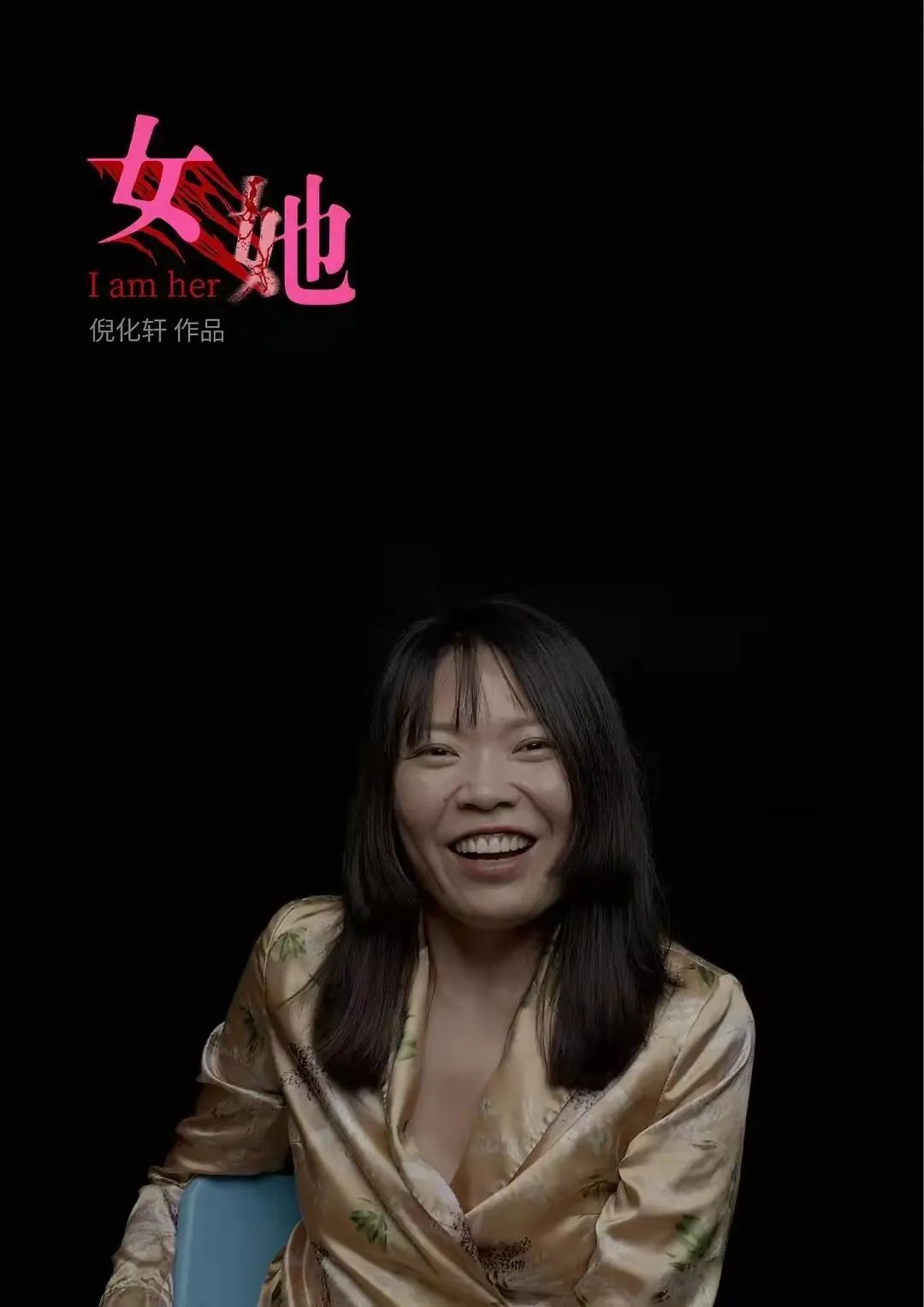
No matter where he goes, Ni Huaxuan is almost always the least noticeable one. Short, thin, square face, pronounced jawbone. A pair of silver earrings, dark clothes, and a men's messenger bag are his constant daily attire. Beginning with the first screening in Shanghai in the fall of 2021, he will bring "The Woman" - a documentary that he conceived, recruited, filmed and edited by himself, as well as his first feature-length documentary. , has gone through more than 30 offline screenings across the country in half a year. At the scene, every time the audience communicates and interacts at the end of the screening, as soon as he picks up the microphone in front of everyone, his uniqueness will be revealed. Douban netizen @光disklan commented: "The director is like a living Buddha. No matter how long the audience asks a question, he will answer it in a few words like Zen." More often, he is smiling and listening to the audience's doubts, watching forward or on the ground. At this time, he may still be looking at you, but in fact, he has already fallen into a certain life experience of himself or others, memories and contemplation. Since 2014, he has photographed his hometown, disabled children, left-behind children, abandoned babies and lawyers. His motivation for filming "She" was so simple and unadulterated-one day he found that he didn't actually know and understand his mother and other women around him. Curiosity drove him to understand and dig, so he began to make friends in the circle of friends. Recruitment, hoping that some women will have the courage to tell their stories in front of the camera. "I love women and want to hear the voices of women in this land." In fact, "Woshe" is the first work produced by Ni Huaxuan's personal oral history project "Becoming a Woman". So far, he has interviewed more than 90 bit women; the project was also selected in the 7th China Oral History International Week, and exhibited at Cui Yongyuan Oral History Research Center. On this year's Women's Day, he put "She" on station B, held the last offline screening of this stage in Foshan, and started the second round of interview recruitment. On the day of the interview, the author came to Guangzhou Urban Village near Ni Huaxuan's residence. On the side of Huangpu Avenue, under the background of loud music, when he fell into memory in the narration, he kept playing with the tissues of the restaurant, kneading and turning the corners.
1
"I don't want to live in a small county anymore"
Ni Huaxuan is from Shandong. At the age of 17, he dropped out of school.
He got a job in a leather bag factory in Shandong, a Chinese foundry from South Korea. The raw materials are sent from South Korea, processed in the factory and sent back to South Korea, and then exported from South Korea to the United States. In the workshop, he is responsible for the cutting of crocodile and ostrich skins produced by artificial breeding. The factory is located at the top of Weihai, not close to home. Back then, it took him half a day by car, and he could only go home once or twice a year.
After working for less than two years, he was a little confused, so he resigned and went home. He stayed at home for a long time, helping his parents till the fields. But one year, he suddenly realized that if he didn't study, he could see the end of his life at a glance, so he thought of going back to school to study.
When Ni Huaxuan today looks back at the 36 years of his life, he can clearly distinguish several forks. "There are actually several forks in my life, and I don't know if I guessed right or chose right, but that's what it is now. I don't think I should stay in a small county, even if I wander around like now, Not in small villages either. I don’t know that myself, but it’s changing little by little.”
The road back to school has not been smooth. He went to a vocational high school for three years, and his classmates were several years younger than him; he took part in the college entrance examination for unified recruitment, and went to college for three years, studying civil engineering. Not professional." In the first year of graduation, he was on the construction site as a technician who communicated between the engineer and the construction team. He took the drawings with the lines drawn and told the construction team how the building should be built. He only held on to this job for less than a year and then ran away.
This was another turning point in his life. There were no major twists and turns at this turning point, it was just a long period of time.
"Those years were quite confusing and chaotic. Not only was the time chaotic, but the memory was also chaotic." Under the first-class self-protection mechanism, a part of his life seemed to be cut off from the body and disappeared in the scattered air. "It's not that I don't want to talk about it, but I really can't remember it, or I don't want to talk about it."
One night when he was twenty-eight or nine years old, Ni Huaxuan suddenly couldn't sleep. At 2 in the morning, the memory seemed to open a crack at a certain moment, and many memories that had dissipated in the past came up. He said that he was not very good at expressing himself since he was a child, and he never had enough words in his composition, but that night he grabbed a two-finger-length pencil beside him and wrote it in the notebook. He called this text composed of more than a dozen memory fragments "calamity pears and calamity dates", which came from Ji Yun's "Notes on Yuewei Thatched Cottage". "The name doesn't make sense. It just means that the words I wrote have no meaning, and I wasted this board, this book."
He later typed the words written on the paper, word by word, into the mobile phone memo. "Of course it's saved. It's important to me," he said, already opening the memo and handing over his phone.
"Excerpts from Disaster Pears and Disaster Jujubes" "4" There were two teachers in high school who subverted my notion that playing games was a bad boy. The two were in their thirties discussing the game "Fantasy Westward Journey" in the office. There was also a class teacher who complained to me that he regretted not marrying his first love. His current marriage was forced by his mother. Now it seems that this incident has opened a very small crack in my values back then. It turns out that adults (teachers) can’t live well, and marriage can also be forced. And what he said to us, "Heart is higher than the sky, and life is thinner than paper". "land" During two years in high school, my mental state was very poor. When I was half asleep in bed, I would think that I would eventually die and be wiped out. The fear of invading the bone marrow in my heart, the physical convulsions of the body, and the hoarse mouth and the almost silent shouting. "eleven" Once I quarreled with my mother, the reason seemed to be because I didn't want me to have long hair or urged me to find a partner, etc. I said don't let other people's saliva affect you, everyone is independent, and the cornerstone principle of freedom of will is As long as a person does not harm the body or spirit of others, he is independent. Then my mother stared at me blankly and said, "What are you talking about, I don't understand." At that moment, my back was chilled, and I was so shocked that I couldn't speak for a long time. "Pickup II" A few years ago, I didn't understand almost anything, and I didn't have a clear concept of making a documentary. I just want to interview a female netizen who writes novels. I took a hard seat train from a small county town in Shandong to Beijing. Light pink short hair, petite, quiet and cute. The first time we met, we chatted with me a lot of life stories at her house. Such great kindness has almost nourished my confidence and attitude in making documentary interviews.
These extremely personal memory fragments are very small. There are not many words, but it can cause a shock in the heart.
In the two or three years before finding the documentary, Ni Huaxuan was always confused. But later, he finally found the documentary. Or, it was the documentary that found him.
He used "magic" to describe the process of his entry into the documentary. In the past, he often watched movies and played games in Internet cafes all night. According to his own conservative estimate, the number of times he stayed in Internet cafes all night was far more than 100 times. But because of this, when he was shooting the short film "Jianwu", he shot the camera on the face of a shirtless, burly man with large flower tattoos on his body. They have long been known as brothers and sisters.
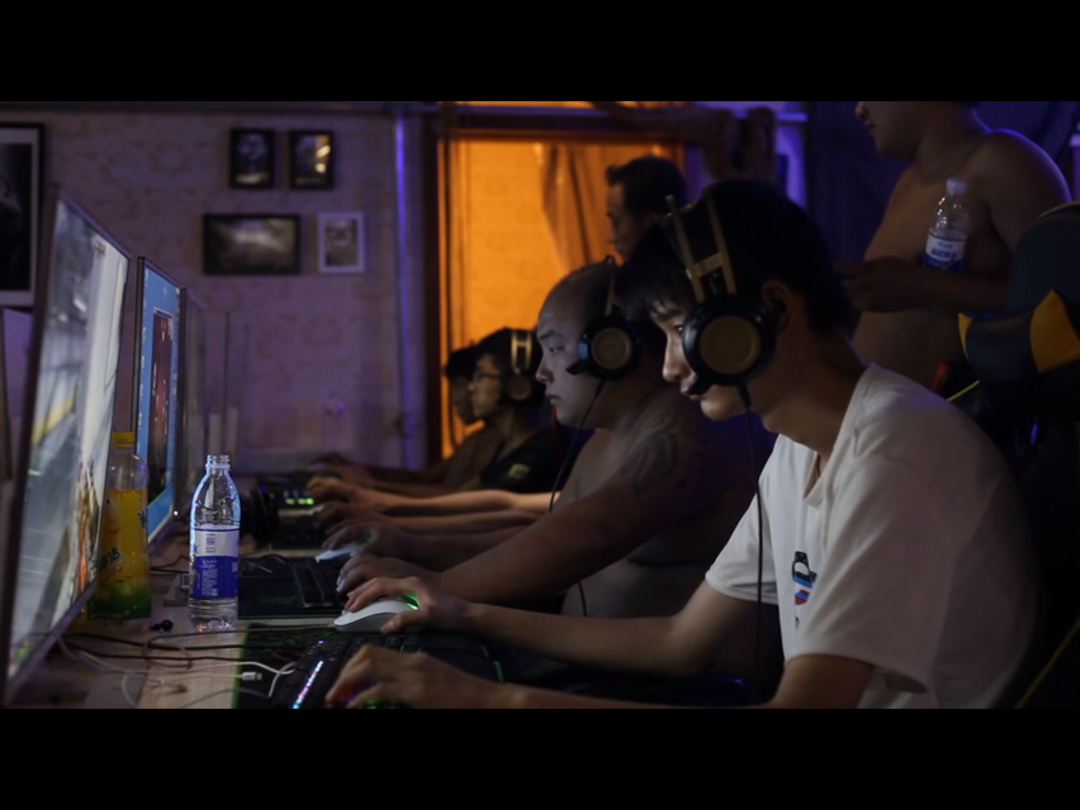
The documentary also "found" Ni Huaxuan in an Internet cafe. One day, at an Internet cafe, he watched a documentary - "The Forgotten Time". "After watching it, I was so shocked and moved. Then I felt that the carrying channel of the documentary was really suitable for me, and I had an idea that I would make a documentary in my life."
Before that, he had not seen any documentaries.
But the process of realizing an idea is not simple. He began to think about how to make a documentary: no resources, no funds, no education, and no technology. At the beginning of that year, he made up his mind to change his career as a cameraman. He found a stupid way to learn to shoot from scratch, and found the filming industry with the lowest threshold—wedding shooting, becoming an apprentice, and learning to make wedding videos. He went to a company for an interview, and the girl in charge of the interview finally asked him, "You are neither in this major, nor have the foundation and experience, how dare you just break into this industry and come for an interview directly?"
It was the hardest year. Ni Huaxuan quit his part-time job and went to Jinan as a full-time apprentice. Two years later, he finally has a camera of his own. From the beginning of 2014 to today, he has made a total of one feature film and three short films, one in each of 2014, 2017, 2019 and 20. "It's an average, every two or three years, my production rate is so slow," he said.
"17 years was quite miserable. Although there were many miserable years, I was afraid that 2017 was the worst." After thinking for a while, he corrected, "No, 2017 was only the worst in the past five years. My mother wanted to put me Pressed in my home county, but I think about it, no. Do you know how young men in small county towns in Shandong greet each other - 'Hey, son, dad is here!' I can't fit in..."
He made up his mind to spend the 18-year Spring Festival and got on the train bound for Beijing. But just before he set off, he happened to see the photographer recruitment posted on Director Jiang Nengjie's WeChat Moments. So he submitted his resume, and then took the train south to Guangzhou.
"Many important people in my life know this way. For example, one day I saw an article on the interface news, and I thought: wow, it's really well written, I really like this author, and then I searched for this person on the Internet. Seven or eight years ago, I searched for his contact information in a forum, made a phone call, and then got on the train from Shandong to Beijing. Now we are very good friends."
It was March 5, 2018, from Shandong to Guangzhou. Ni Huaxuan clearly remembered this day.
Just a few months after moving to Guangzhou, he followed Jiang Nengjie to film a documentary in Liwan District and lived near the filming location. It took two years to shoot back and forth. The documentary team usually only needs one or two people. In the past two years, Director Jiang had more people on the team, three or four people in total. At that time, he was filming pneumoconiosis and public interest lawyers. When filming pneumoconiosis, Ni Huaxuan also went to Hunan several times, staying there for about a week each time.
"At that time, the person was dying, so we photographed their daily family life, in the mountains. A man in his fifties, with children, and his mother was still alive... I was very impressed with that family, which is "The Mine" The family in the last big paragraph in The People, Grooms, and Pneumoconiosis."
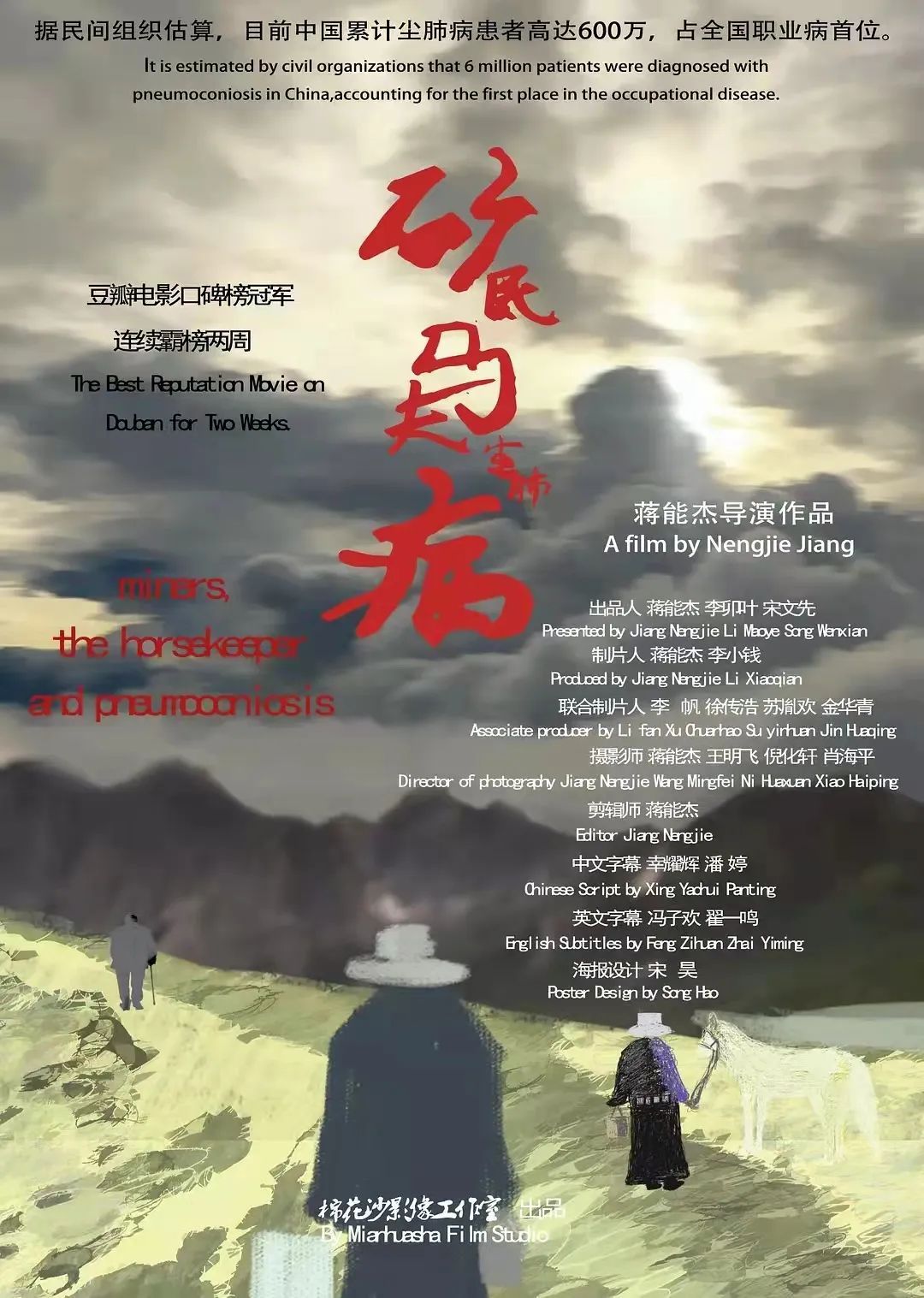
2
"My adolescence started at 30"
"In a way, my adolescence started at 30."
After several confusions, troughs and turning points in his life, Ni Huaxuan began to think about what he wanted to do. He has a strong desire to understand "people". "It's also a kind of curiosity. People who want to make a documentary have a strong internal drive, and the external drive is basically useless." He said. "I want to experience different life processes and life experiences in the form of documentaries to combat the emptiness of life." After two years of documentary filming with Jiang Nengjie, he came up with the idea of documenting women.
If we say that by watching documentaries, we can see different people’s different ways of interpreting the world; then, to a certain extent, making documentaries allows other people’s life experience to be integrated into your own “one share” life, broadening the boundaries of your own life. At the same time, it also adds the thickness and strength of life - as the artist Yang Yuanyuan said, "making a documentary is the exchange of life".
So Ni Huaxuan started a personal interview project called "Becoming a Woman". He recruited through the circle of friends, and when the number was enough, he dragged a suitcase of shooting equipment on the train. In Beijing, he borrowed the living room of a friend's house to focus on shooting for more than 20 days, and shot nearly 40 women, two a day. "Ultra-intensive, basically wake up every day and eat breakfast, the interviewee will come, shoot until noon, and then eat lunch, the interviewee in the afternoon will also come, after chatting, walking, eating, it will go to the evening I sleep in the living room at night. No need to spend money." He said with a smile.
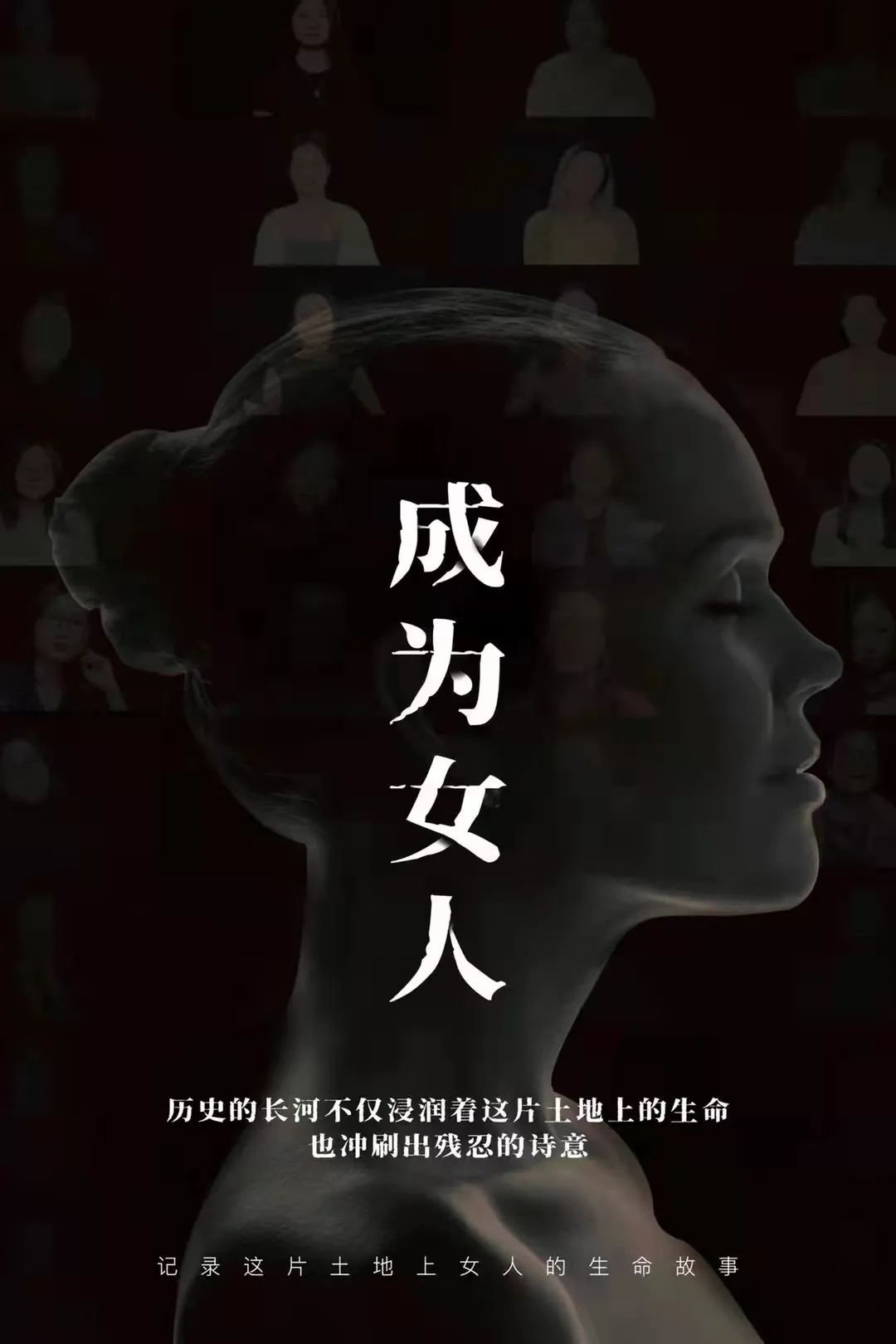
Unlike usual interviews, Ni Huaxuan will not conduct pre-collection. Usually, the two parties reach a consensus on WeChat, make an appointment to go to the shooting location, and after a few chats, the shooting begins. During the filming process, he also does not ask questions or presuppositions. The interviewees tell their own stories. He listens quietly and restrains his urge to ask questions when he is curious. Sometimes when the other person does need some guidance to continue, he asks open-ended questions, such as "What happened?" or "How did you feel at the time?"
"It's like poking a hole in a table. Because on a harder surface, you can't tell if there's something under it, you don't know. Only after you poke a hole do you see what's inside. But it's Women in this land seldom make their voices so self-conscious, I just pierced an eye on the table with a needle, and the thing that popped out of the eye."
After watching the film, many viewers will be curious as to why the interviewed ladies would tell such a precious and private personal life experience to a strange man they met for the first time; some even asked him if he had some communication skills. However, Ni Huaxuan does not have any communication methods and skills that can be spoken. Sincerity is all he has. "Many times, you give others a lot of kindness and sincerity, and others may give you a little sincerity in return."
When everyone was scrambling to speak out loudly, and various polarized opinions flooded into their ears from all directions, Ni Huaxuan chose to do the opposite: listen to this land without judgment and quietly A woman's life story. His listening is to let go of his own listening - at the moment of listening, let go of self-consciousness and integrate into the speaker's life. This may be the reason why he has watched the film hundreds of times and is still immersed in it vividly every time. "Whether I watched it a hundred times during the editing or dozens of times during the screening, I am still obsessed with being immersed in the narrative and feelings of the characters in the film."
But the women sitting in front of him often told the heaviest part of life. Some viewers may feel that the film has too much "negative energy", but in his eyes, there is no so-called "positive and negative" energy. When victims of sexual assault and domestic violence sit in front of the lights and the camera and calmly tell about their traumas , in addition to the pain of the past, it brings the viewers the strength and courage to overcome these wounds. As the eldest sister in the film said about her mother, "It's not that they are cruel, but that their living environment is too cruel to them, so they are used to their lives being worthless." "Everything is cold, but they survive. In the face of suffering, the resilience of human life often exceeds our expectations and is immeasurable.
Ni Huaxuan spread these pains naked and unadorned in front of everyone. The black background, with the woman being told by a bit, is all there is in the picture.
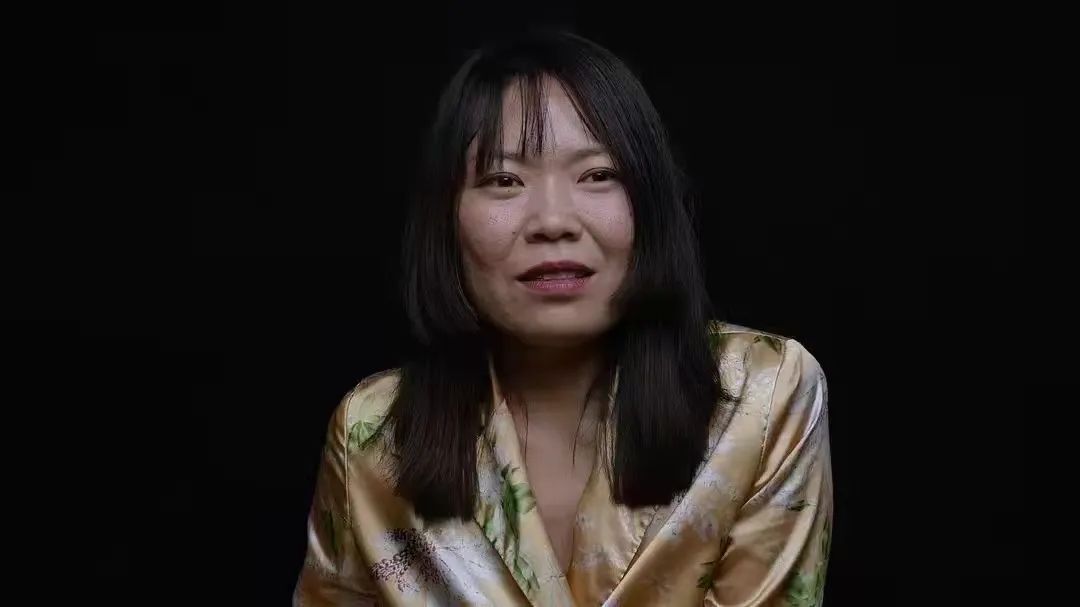
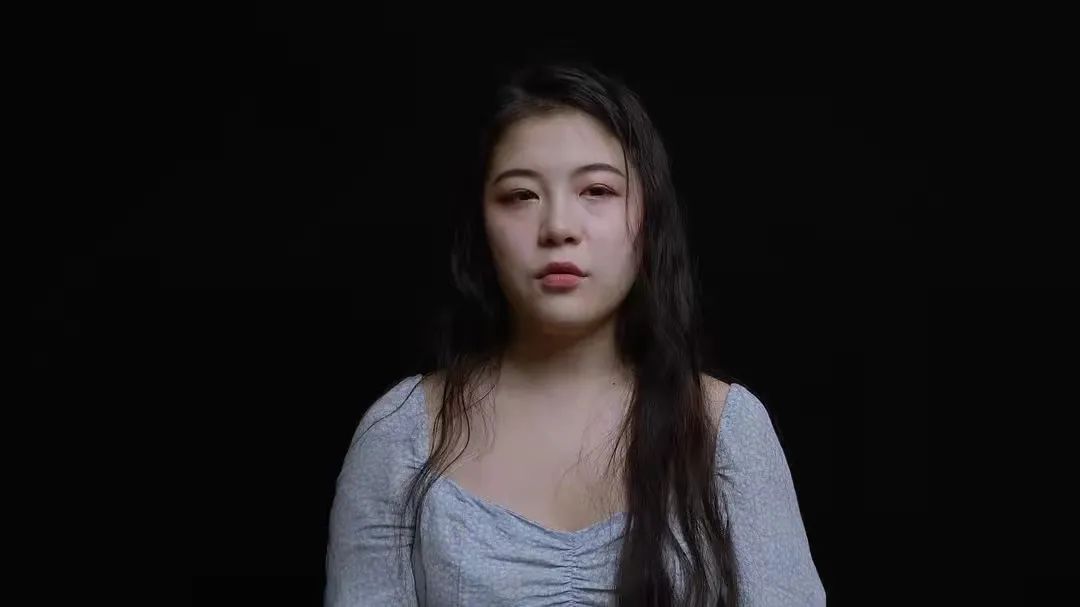

It is precisely because of this that all the eyes of the audience are on the narrators, and we have a long and long-term eye contact with them - this kind of eye contact is undoubtedly powerful.
Such a presentation channel is reminiscent of the Japanese artist Yoshitomo Nara, whose backgrounds are similarly empty in many of his works. There is neither patent-like superb painting skills, nor high-intensity output and production of knowledge in his works, but he has completely constructed a world and expression that belongs to him, and has aroused a wide and strong emotional resonance. The audience can't ignore the narration of a few women in "She" and the clear eyes looking directly at the camera - what can we do in the face of force majeure atrocities? How can we resist the perpetrators?
For the viewer, the viewing of "She" may not only evoke emotional resonance and shock, but may also evoke those forgotten fragments buried in deep memories. The pain that subtly spreads in the body. The rumination of memory will undoubtedly bring the caring gaze back to ourselves, perhaps embracing the injured self in memory without knowing it. For the narrator in front of the camera, facing up to the past experience is undoubtedly a process of self-rebirth. They let go of the frameworks that once bound them to be true to themselves and others. Miss Beiying in the film said after the interview: "I often think of the evening after the end. I was running on the street excitedly. When I passed the overpass, it became quiet and I watched the gradually setting sun. It was bright and dazzling. I know that some things are different."
However, listening to these stories with high intensity and concentration was also a big challenge for Ni Huaxuan. He continued to be depressed for a while after the interview. He can only go out for a run and relax.
"Don't feel that your life is very light. Everyone has everyone's life, everyone has everyone's story, everyone has everyone's meaning, everyone has everyone's abyss, no one can get around ."
3
"Wandering alone"
Ni Huaxuan's work is surprisingly consistent with his character. Whether it was the original intention before filming, or the use of pure interviews during filming, and when editing, I used a stupid method to paste all the texts on the wall for screening... The work is just like the person, simple, simple and sincere. He said, "The core is emotions and feelings. Most thoughts will change with the times, only emotions and feelings remain unchanged. There are too many directors who are good at outputting ideas. I am not a director, I am a porter of emotions. ."
He is introverted and not very expressive and social. "I learned many years ago that most of the people who can talk are nonsense."
But sincere works will eventually be seen. In the past six months, word of mouth and recommendations from friends have allowed him to perform more than 30 offline screenings in bookstores and independent spaces across the country. "The screenings in other places basically lose money. There is no travel expenses, and it is actually difficult to rely on only a few dozen yuan for tickets."
The first time he participated in the screening, he was a little uneasy. After more than 30 post-screening discussions, he was still nervous, but the content of the sharing was more logical, and the answering questions were more calm.
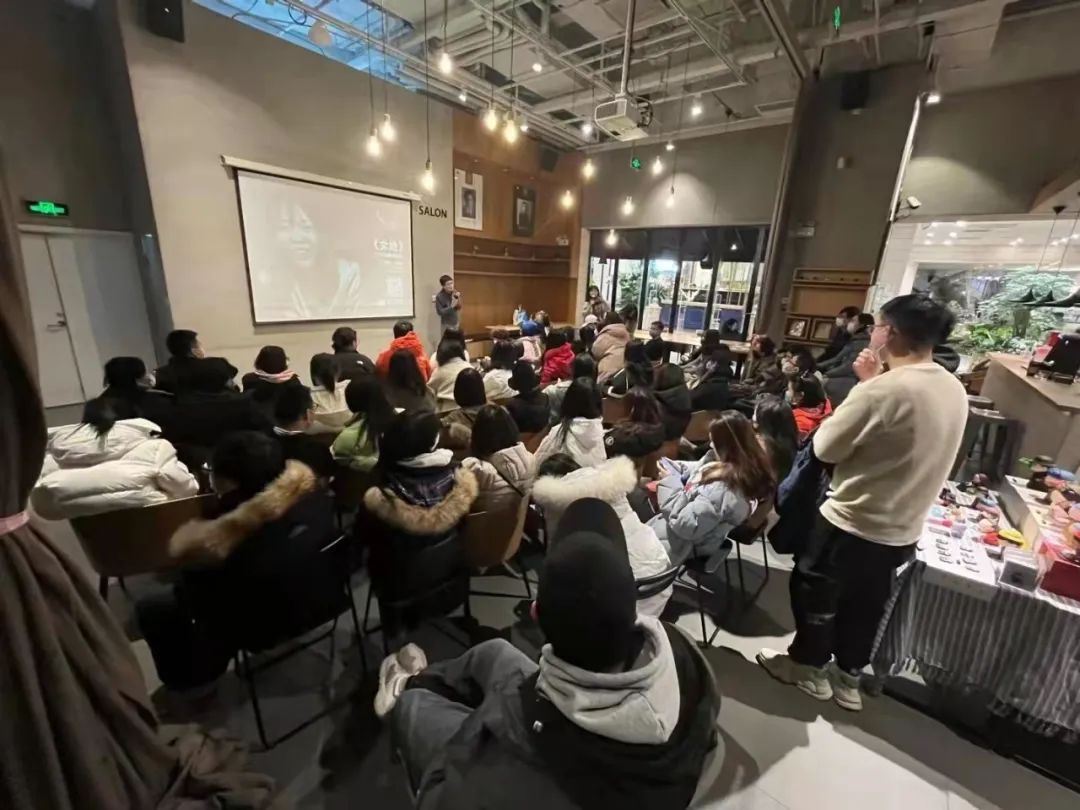
For his debut novel, Ni Huaxuan wants to minimize the content of its tools and emphasize authorship. "I'm not speaking for anyone, but to complete my own work, not for feminism or everyone. It's not that I don't care about society, but maybe I live in my own world." Although the narrators in the film are all women, but He doesn't want everyone to wear feminist glasses to watch movies. He is more concerned with the stories and emotions of "people" rather than "men" or "women". After "Girls" was put on station B, he regarded it as a boat that had been left to drift freely, which no longer belonged to him, and would embark on its own new journey. By reading Douban comments, he found that people are indeed very different, which he could not imagine before. "Some people don't understand it at all. In the first few comments, some people said, what are you filming, and then complained about my editing. I was surprised that some people did not perceive the emotion in it."
In the future, he hopes to conduct mass interviews like the French documentaries "Women" and "Humans". At present, he has interviewed more than 90 bit women, and it is his current goal to increase the number of interviewees to 1,000 in the next five years. The interview was interrupted before and will now continue to recruit. The reason for the interruption of the last round of interviews was that the summer in Guangzhou was too hot, and his living room was not equipped with air conditioning. Facing another summer to come, he said, "If you think of a way, there is always a way."
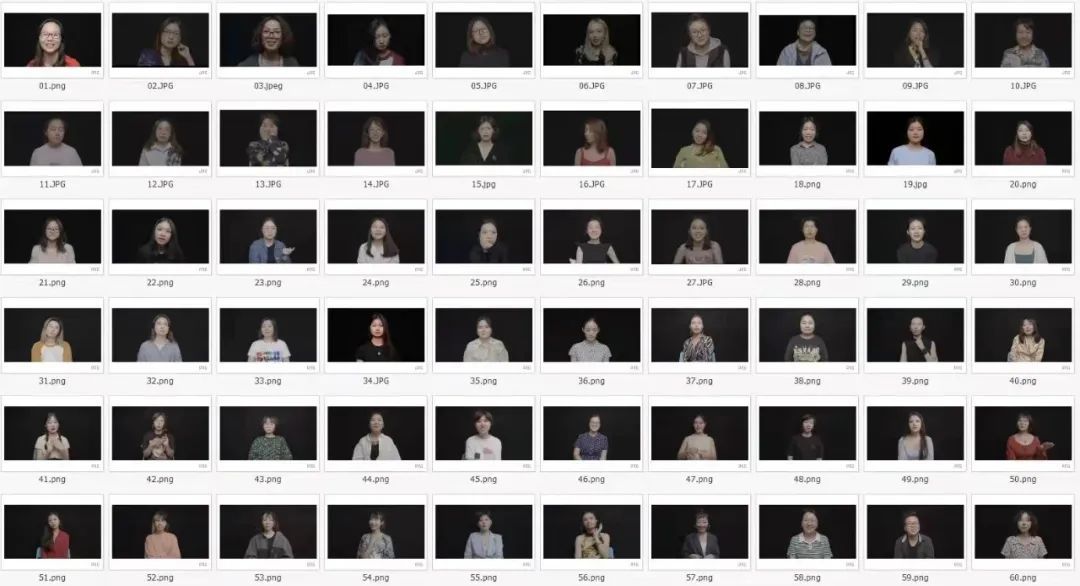
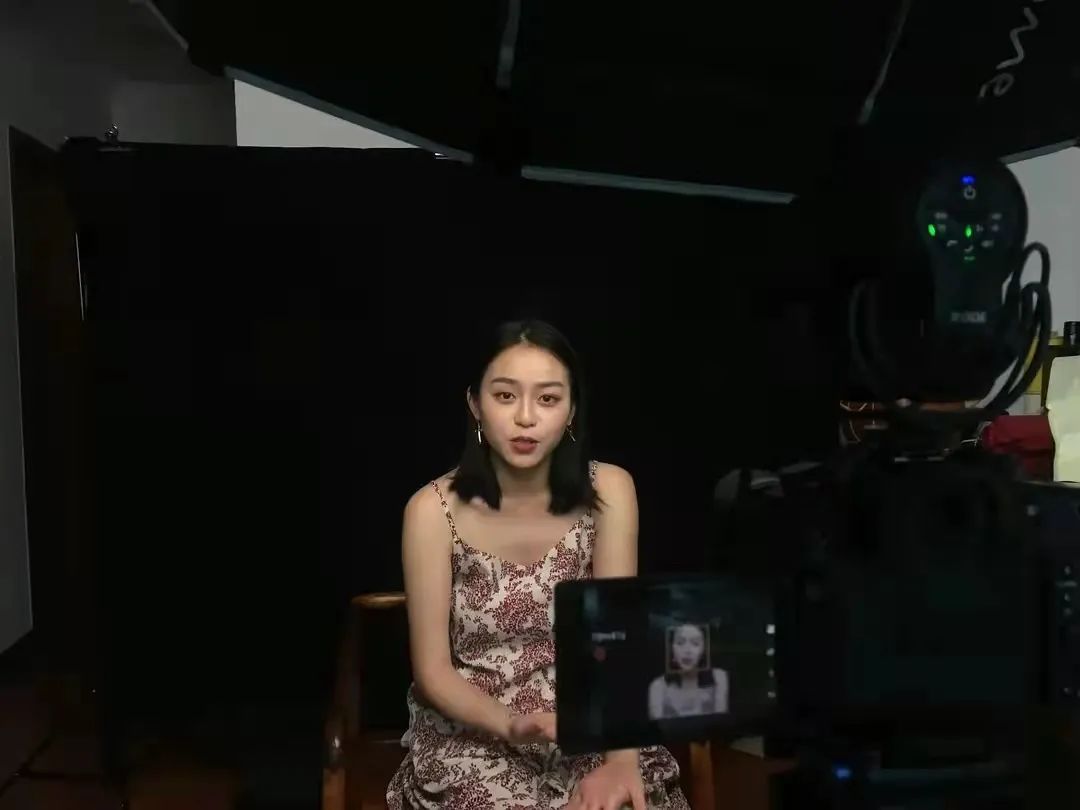
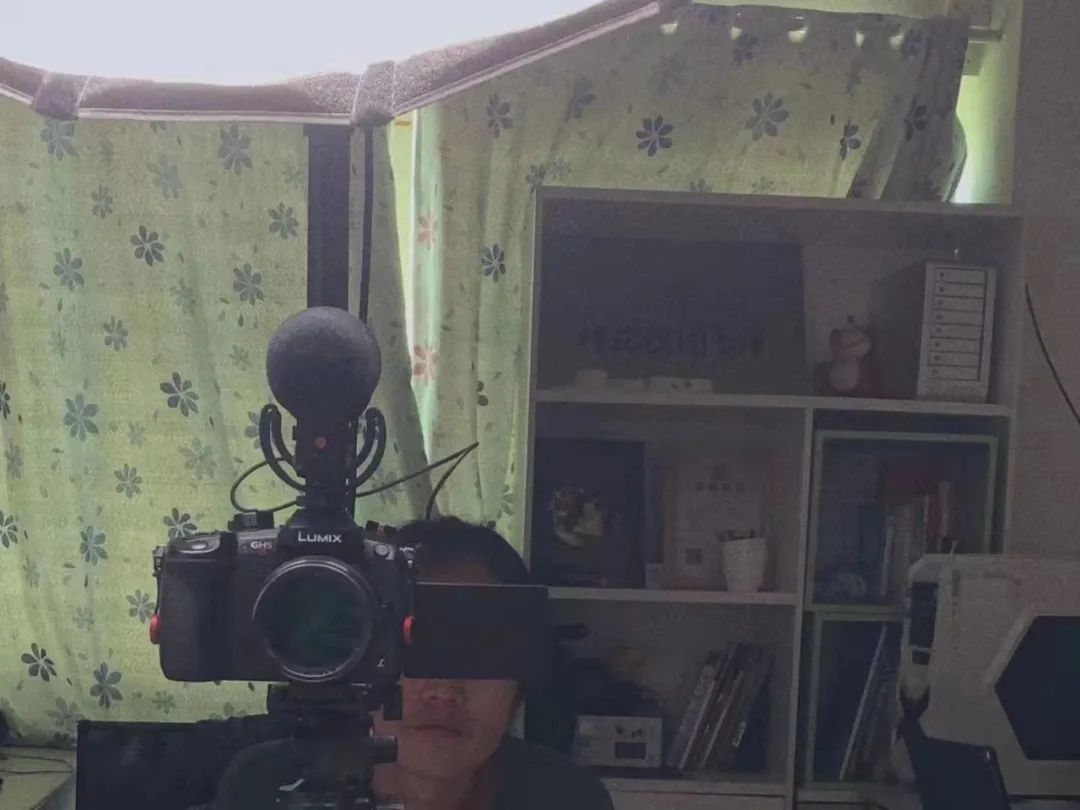
He also came up with a new "Fifty Years Box" experimental interview plan: "If you don't want to make your interview public for any reason, I can guarantee that the interview material will not be made public within 50 years, and then after 50 years. It is used in interview works.” He hopes to have the opportunity to put the works in the museum in the future, and his current vision is to put hundreds of screens in the museum space at the same time, and each screen is playing the same bit speech in a loop. The audience can watch hundreds of speakers narrating at the same time; or disperse screens in industrial parks and art parks to spread the stories in every corner of the park.
He has no plans for his future life. Although he lives in Guangzhou, "Guangzhou, Suzhou, Beijing, Shanghai, Chengdu, Nanjing... all cities are similar. I don't have a favorite city, and the city is far less important to me."
Ni Huaxuan sighed.
"I want to wander by myself again. The wandering is very free, and I like it, but the wandering feeling of wandering can't be resolved. If you wander, you should still choose to go to a place with someone you like."
He looked out the window, thoughtfully, then smiled.
"I thought about the truth. The so-called 'truth', is what I tell you the truth? In fact, there are a lot of things I haven't told you, is it the real me? What I show you, or what you see Are they all real? A lot of them are not real. I told you, can you understand? I suddenly thought of this. There are many more parts, stories of interviews, people I know, written than disasters and disasters There are much more things. There are also deep scars in the disaster, the pear and the disaster, and people are destined to be lonely."
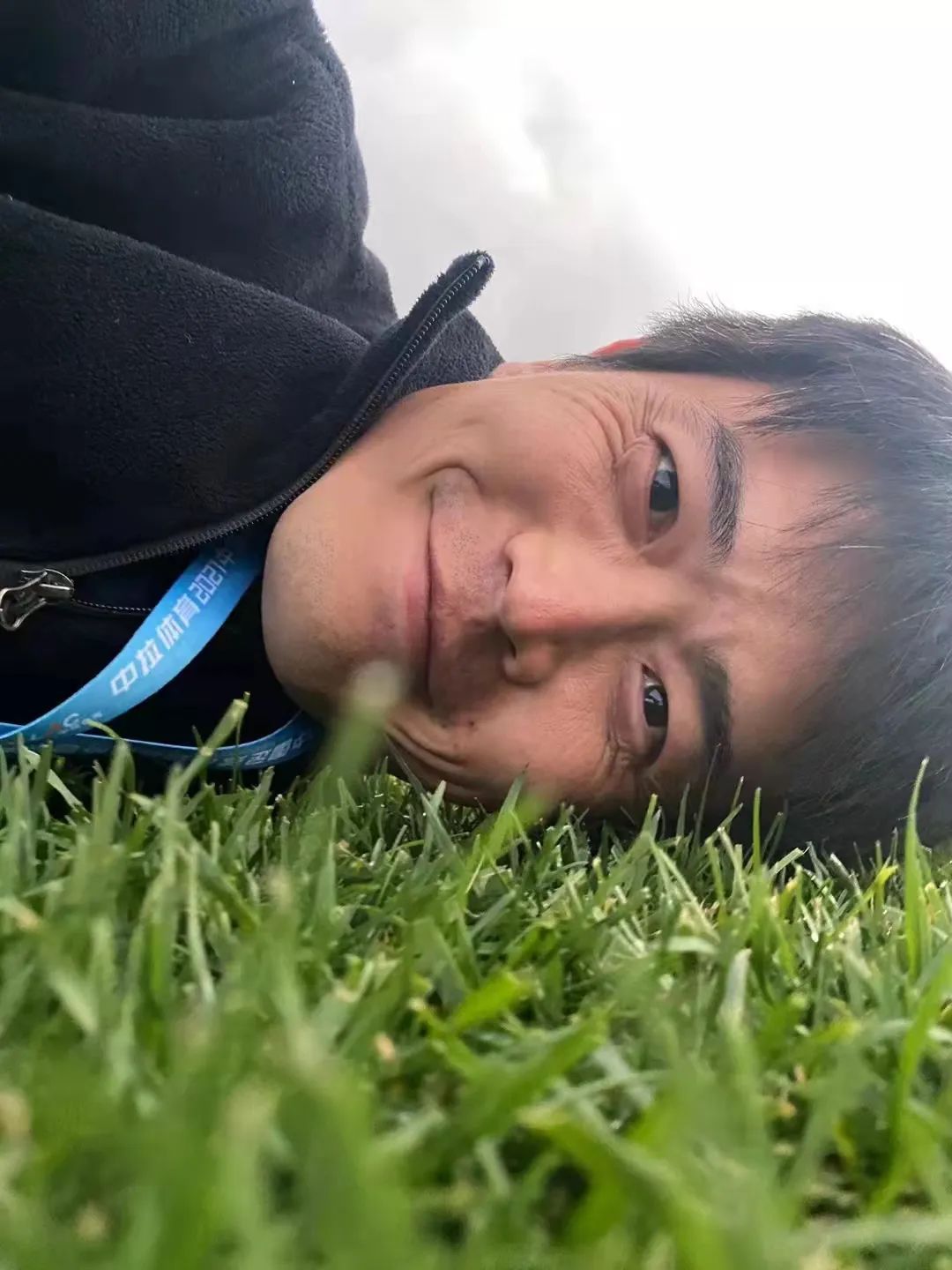
Ni Huaxuan, born in Shandong in 1986, dropped out of school at the age of seventeen to work for a few years and then returned to school to study. He wanted to experience different life processes through documentaries, covering topics such as abandoned infants, disabled/left-behind children, and pneumoconiosis. The desire to know "people" is unshakable. Documentary shorts "June 1", "Jianwu", "The Sheep Wearing a Bell", and documentary "She".
The interview project "Becoming a Woman" will start the second round of filming in Guangzhou this month.
The detailed interview recruitment is as follows:
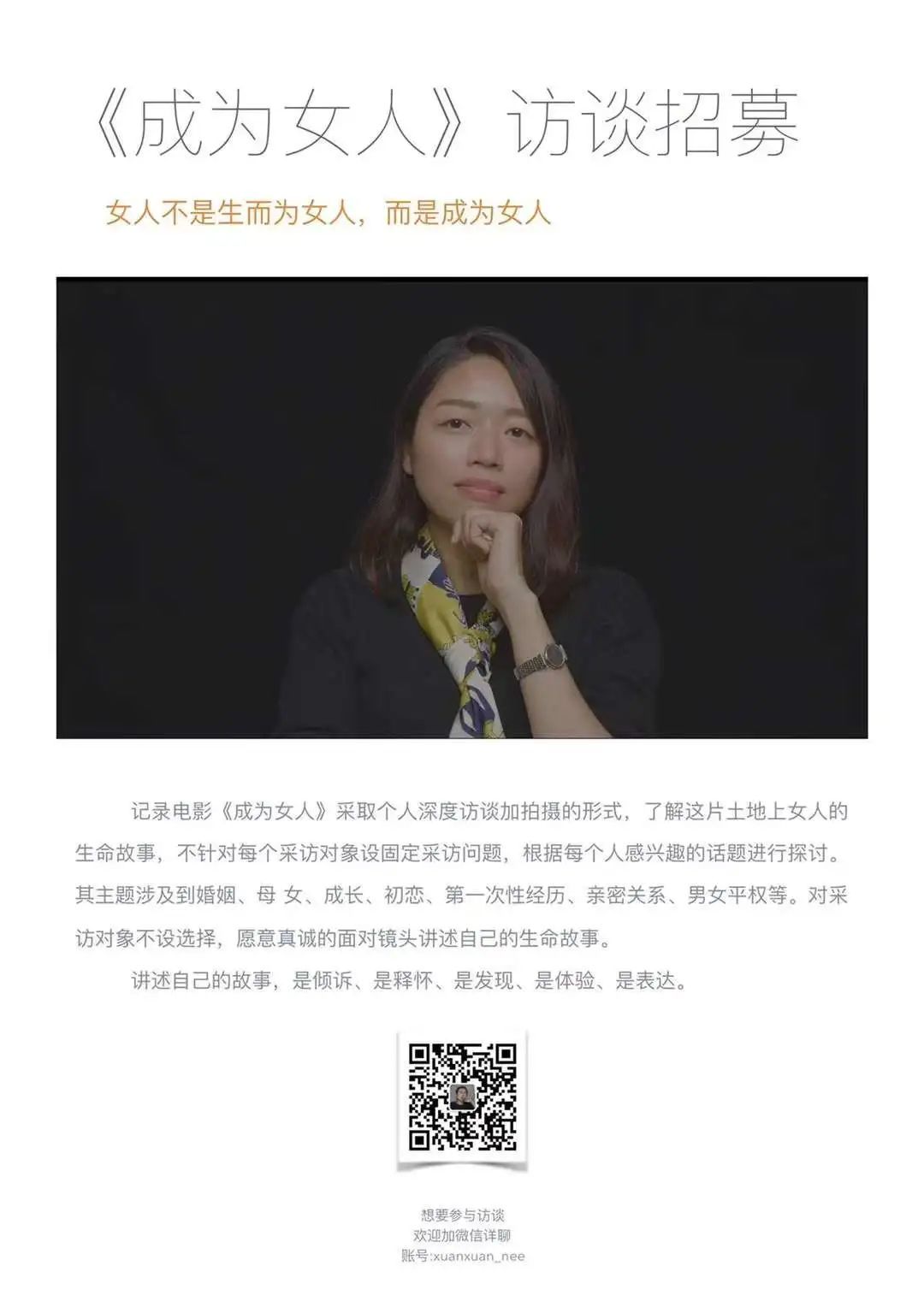
Written by Li Zhuoying
WeChat Editor|Li Zhuoying
matters editor | Gigi
Review | Ronnie
Figure | From respondents and the network
Around the Fire (ID:weilu_flame)

The pictures in the text are not used for other purposes without consent
You are welcome to comment below the article to exchange discussions with the Ios team and other readers
If you want to know about the fireplace and read more articles, please pay attention to this official account and click the corresponding menu column on the official account page

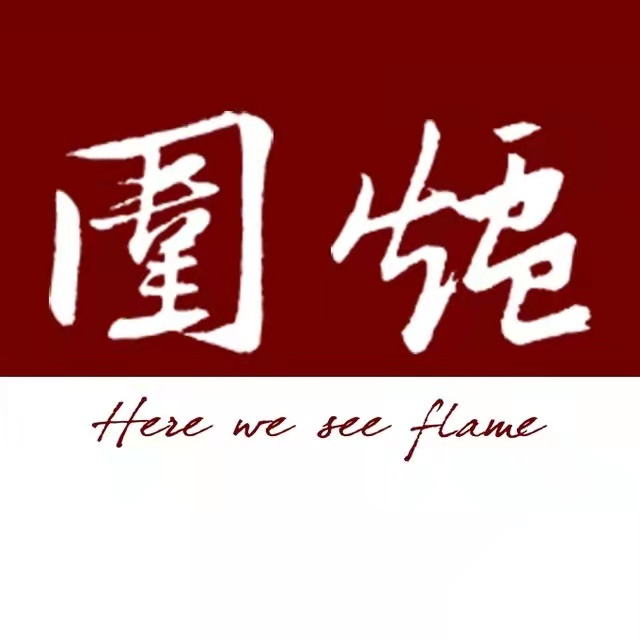
Like my work?
Don't forget to support or like, so I know you are with me..
Comment…